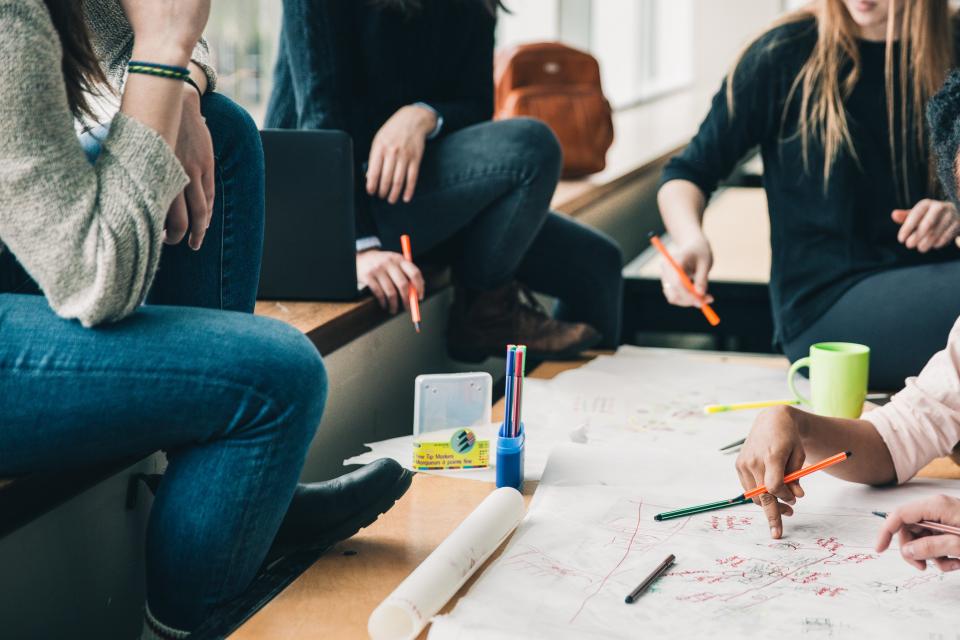
Adults today are experiencing “alarming” and unprecedented levels of stress as a result of the life-altering Covid-19 pandemic, rising inflation, and horrifying Ukraine crisis, says the American Psychological Association’s most recent Stress in America survey. And if you’re a parent, you’re even more worried about money, housing, and the coronavirus than people who don’t have kids. Perhaps most concerning, parents are troubled about how Covid has impacted young people’s development.
This is understandable. By all accounts, teens, tweens, and younger children have fallen behind. Without the quality of instruction, structure, and support offered in the classroom, many students lost months of learning. As many parents report, teens and tweens fell behind in their work and did not master the curriculum, especially if they lacked technological resources or were provided poor remote schooling.
During stretches of lockdown, social media may have eased isolation, but teens and tweens missed out on interacting in person with peers, robbing them of precious, developmentally-sensitive opportunities to build social skills, self-regulation, and executive function skills. Many were cheated of rites of passage, such as graduations, which help emotionally process and work through transitions.
In many families, more togetherness did not necessarily mean more support. Parents’ time was stretched thin. Many were infected with the virus and ill themselves or were caring for others. Worries about jobs, finances, and the threat to vulnerable family members weighed on mothers’ and fathers’ minds. And this was occurring while working remotely and supervising teens and tweens’ distance learning. In some cases, mothers were essentially homeschooling. The sense of overwhelm, loss of control, anxiety, and distractibility made many of us more irritable and less patient with kids.
In my experience, the pandemic exacerbated whatever vulnerabilities or difficulties teens and tweens had already been dealing with. Whether they were struggling academically, socially, or emotionally, Covid-19 shined a bright light on their troubles. Many adolescents who had been quietly treading water suddenly found it hard to stay afloat. As a result of downward spiraling, far more parents were suddenly looking for tutors, psychotherapy, or psychiatric medications, resources that became—and have remained—scarce.
So, what can parents do? Here are six ideas:
Get more information. While it is wise to pay attention to your observations and gut feelings about how your teens and tweens are doing, remember that your reference group is small. Get some perspective from your student’s main teacher, guidance counselor, or school psychologist to find out whether or not she is in fact lagging behind her peers. Or is this a more pervasive problem in her grade? How is the school addressing this issue? What do they suggest you do at home?
Prioritize Healthy Habits. To counteract the effects of harmful coping strategies during the pandemic, it’s good to get back on track. Now’s the time to resume—or form—healthy habits. Ensure teens and tweens get enough sleep, make good dietary choices, and are physically active to facilitate the stamina, brainpower, and resiliency they need to make progress academically, socially, and/or emotionally. Take a walk or a hike as a family. Spend time in nature. As a bonus, demonstrating positive ways of dealing with stress for your kids will undoubtedly improve how you feel, too.
Encourage Growth-Enhancing Activities. With infection rates slowing and warmer weather in sight, it may be possible to resume activities that have been unavailable. Or, you and your teen or tween may reassess her priorities and choose new ones. You may be tempted to nix a time-consuming athletic team in favor of more academic support, for example, but then reconsider because she is more organized and efficient in school when she’s busier. Plus, you may be aiming for one of the myriad benefits of teams, such as making friends; learning cooperation, sportsmanship, and leadership; and working well with coaches.
Call in the Troops. If you’ve debated having your teen or tween work with a math or a foreign language tutor, seeing her struggle may help you make the call. Or, if you saw your student become disorganized and overwhelmed during remote learning, a study skills or executive functioning specialist can directly teach those skills. If you think a professional isn’t necessary, a capable high school student who can be a role model for motivation and a strong work ethic could be a better choice.
Discuss Stressors. The pandemic may have eased up, but teens and tweens are still feeling its effects—as well as worrying about school violence, climate change, and nuclear war. Although it’s been a tough few years for everyone, this age group has borne the brunt. Don’t be afraid to ask your adolescent what’s troubling her. You won’t be putting ideas in her head. Rather, you’re giving her the chance to air out her concerns and fears in the light of day, potentially alleviating them. Brainstorm ways to effectively deal with stress.
Take heart. Some good came out of being quarantined. More than half of teens reported being more well-rested, feeling happier, and spending more quality time with their parents. For this age group, social media became a lifeline for making connections, reducing isolation, alleviating anxiety and depression, being entertained, learning, and reducing stress, to name just a few benefits.
Although it can be anxiety-provoking to think about your teen or tween having to catch up, remind yourself of other times when she fell behind, such as when recovering from a long illness or injury. Be assured that kids have the capacity to undergo huge maturational spurts. With the experience, neuroplasticity helps younger brains to grow, change, rewire, and reinforce important connections more quickly than when they are more mature. To a parent, though, it might never happen fast enough.